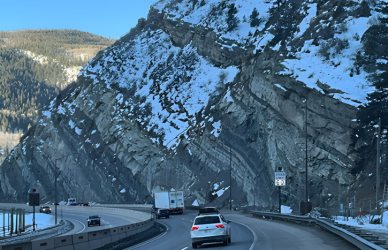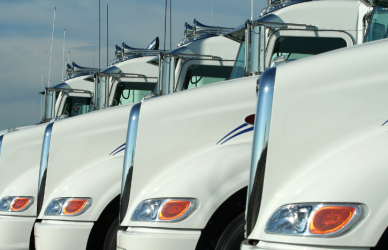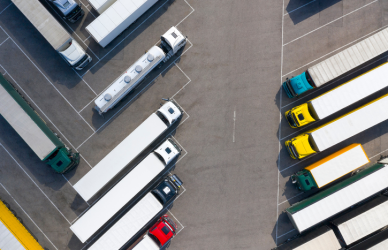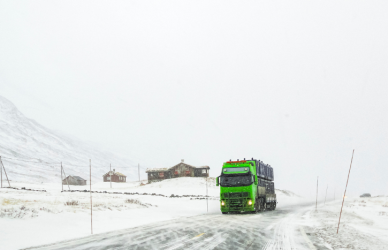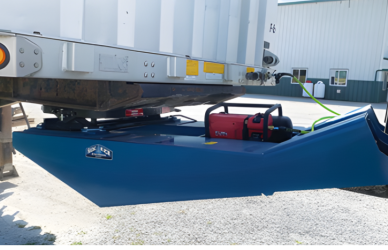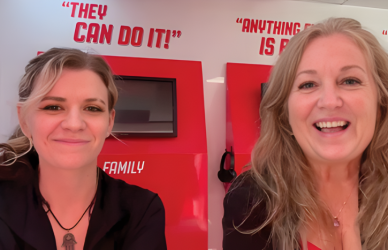Trucking in urban areas presents a unique set of challenges for drivers. From congested streets to narrow alleyways, the urban jungle can be a daunting place for truckers. With the right knowledge and strategies, however, you can navigate these busy environments with confidence.
- Plan Your Routes Wisely
One of the most crucial aspects of trucking in urban environments is route planning. Use GPS navigation systems designed for trucks to avoid low bridges, restricted roads, or areas with weight restrictions. Familiarize yourself with alternative routes in case of unexpected road closures or heavy traffic. By planning ahead, you can save time, fuel, and reduce the likelihood of accidents.
- Use Technology to Your Advantage
Take advantage of technology to improve your trucking experience in urban environments. Consider using real-time traffic apps or navigation systems that provide live updates on road conditions, accidents, and traffic congestion. This can help you make informed decisions and choose the most efficient routes.
- Time Your Travels
Timing is everything when it comes to trucking in cities. Rush hour traffic can significantly impact your delivery schedule, causing delays and frustration. Whenever possible, plan your trips during off-peak hours to minimize congestion and optimize your travel time. Additionally, keeping an eye on local events or road construction can help you avoid potential bottlenecks and make better decisions regarding timing.
- Be Mindful of Parking
Finding suitable parking spaces can be a major challenge in urban areas. Ensure that you are aware of local parking regulations and restrictions, as well as truck-specific parking options. Utilize truck stops or designated truck parking areas whenever available, and always park in well-lit areas for security. Be considerate of other vehicles and pedestrians while maneuvering in tight parking spots.
- Maintain Awareness of Surroundings
In congested urban environments, it is crucial to maintain constant awareness of your surroundings. Pay close attention to street signs, traffic signals, and pedestrian crossings. Keep a safe following distance from other vehicles and be mindful of blind spots. Use your mirrors frequently and always use your turn signals to communicate your intentions. By staying vigilant, you can minimize the risk of accidents and ensure the safety of yourself and others.
- Be Cautious of Pedestrians and Cyclists
Urban areas are often bustling with pedestrians and cyclists. Be extra cautious when sharing the road with vulnerable road users. Yield to pedestrians at crosswalks, watch out for cyclists in bike lanes, and always use your mirrors to check for approaching pedestrians or cyclists before making turns.
- Practice Defensive Driving
In urban environments, defensive driving is essential. Anticipate the actions of other drivers and be prepared for sudden stops, lane changes, or unpredictable maneuvers. Keep a safe distance from other vehicles and adjust your speed according to the flow of traffic. By practicing defensive driving techniques, you can reduce the risk of accidents and navigate urban areas more safely.
- Stay Updated on Local Regulations
Urban areas often have specific regulations and restrictions for trucks. Stay informed about any local ordinances regarding truck routes, delivery hours, or noise limitations. Adhering to these regulations not only helps you avoid penalties but also fosters positive relationships with local communities.
- Communicate with Dispatch and Customers
Clear communication with your dispatch team and customers is vital when trucking in urban areas. Provide regular updates on your progress and any potential delays. Communicate any specific delivery instructions or restrictions to ensure a smooth and efficient process.
Trucking in urban environments requires careful planning, adaptability, and a heightened sense of awareness. By following these tips, you can navigate cities with confidence, ensuring timely deliveries and enhancing road safety. With these strategies in your toolbox, you’ll be equipped to tackle the challenges of trucking in urban areas successfully.




